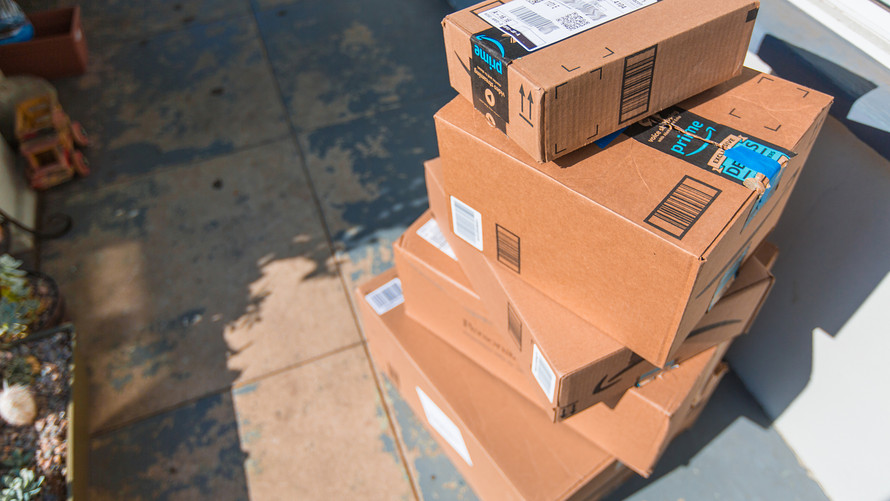
The online retailer has indicated it wants to use biometrics to thwart thieves
Amazon may be introducing a high-tech solution for the millions of Americans who have packages stolen off their porches each year — but privacy groups aren’t buying it.
The retail giant filed for a patent in November on a new feature for its Ring video doorbells that would use facial recognition software to identify “suspicious persons” near a customer’s front door. Such people could then be added to a database of “suspicious” people, the patent showed, according to the Telegraph. The technology would also use biometric techniques including scent recognition and fingerprinting to determine whether a person was an authorized guest.
The technology would be a tool against the bane of many who have ordered packages from Amazon AMZN, -4.01% only to have them disappear from their doorstep when they are stolen. Some 26 million Americans have had packages stolen, a recent survey from InsuranceQuotes.com found. Police in New Jersey have even used fake packages rigged with GPS tracking to catch would-be thieves.
But some say Amazon’s possible use of facial recognition software represents an “unprecedented” threat to civil liberties and racial justice.
“Amazon is dreaming of a dangerous future, with its technology at the center of a massive decentralized surveillance network, running real-time facial recognition on members of the public using cameras installed in people’s doorbells,” wrote Jacob Snow, technology and civil liberties attorney at the ACLU of Northern California on Wednesday.
Amazon did not respond immediately to request for comment.
The ACLU has warned in the past that face recognition surveillance poses discrimination concerns. Surveillance technology is less accurate for darker-skinned individuals, meaning that they could be unfairly targeted by law enforcement agencies using this technology, research from the ACLU and MIT has found. Amazon has reportedly pitched its facial recognition technology to U.S. Immigration and Customs Enforcement (ICE) as a possible tool for immigration enforcement, according to an October report from Bloomberg.
The doorbell-linked technology raises concerns Amazon that would hand over any facial recognition data captured from the devices to law enforcement, Snow wrote. In a future where these devices are set up on doorbells, simply approaching a friend’s house could result in your face, fingerprint, voice, and even scent being sent to a government database without your knowledge or consent, Snow wrote.
“Don’t expect Amazon to limit tracking technologies to doorbells or homes,” he said. “Amazon wants to enable the tracking of everyone, everywhere, all the time. And it’s apparently happy to deliver that data to the government.”
There are less invasive ways to prevent package theft: Amazon has given customers the option to have packages delivered to lockers at locations near their houses that can be opened with a code. There are more than 2,800 lockers across the U.S. And Amazon’s Key for Prime kit also allows authorized shipping personnel to gain access to an Amazon Prime customer’s home to drop off a package.


